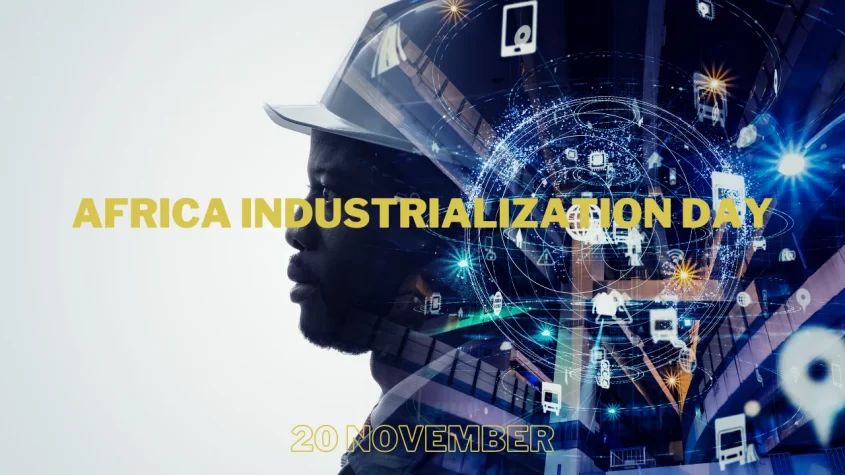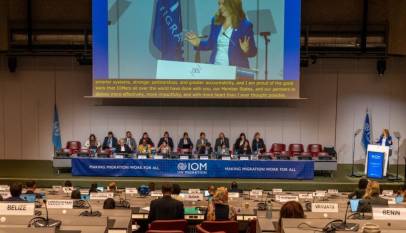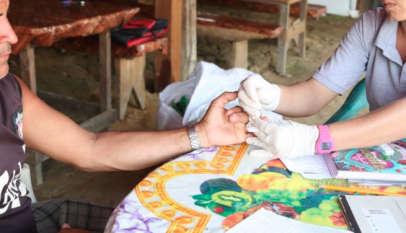BLOG | African Industrialization Week 2023: Just Like Black Friday, Do We Need Free Trade Friday?
Yavi Madurai writes on the significance of this year’s Africa Industrialization Week, celebrated last week on the theme, “Accelerating Africa’s Industrialization Through the Empowerment of African women in Processing for an Integrated Market.”

What a week it has been! Africa Industrialization Week, that is. The continent kicked off this week with the commemoration of Africa Industrialization Day on Monday.
Within the framework of the 2nd Industrial Development Decade for Africa (1991-2000), the United Nations General Assembly (UNGA), in December 1989, proclaimed 20 November as Africa Industrialization Day (AID). Since then, the United Nations and partners every year commemorate AID to raise awareness about the importance of Africa’s industrialization and the challenges faced by the continent’s industrialization drive.
This year’s theme was very appropriately framed as, “Accelerating Africa’s Industrialization Through the Empowerment of African women in Processing for an Integrated Market”. The very strategically worded theme highlighted 3 crucial issues for me:
- “Women” are critical to Africa’s industrialization, not just as a beneficiation priority, after years of saying how critical women are to Africa’s economic development. This year’s theme is beyond ‘tokenism’ rather portrays the true realization that Africa’s industrialization is truly dependent on Africa’s women.
- An “integrated market” means 2 very specific and interconnected issues: The African Continental Free Trade Area (AfCFTA) and the Free Movement Protocol (FMP).
As an African woman entrepreneur, an African prosperity (through women and youth inclusion) activist as well as an FMP advocate who also bears the ubiquitous nickname ‘Ms AfCFTA’ because of my staunch advocacy and belief in its transformative effect on African prosperity – this year’s AID theme ‘spoke to me’ in all its glory.
It got me thinking about what we should be doing as active citizens, as Africa’s women, as entrepreneurs, as agents for change?
Today is designated as “Black Friday” in the U.S – started many decades ago and considered the first day of the holiday shopping season known for featuring discounts as high as 75% from retailers who see it as an opportunity to sell their old stock before the end of the financial year and the arrival of the Christmas shopping season.
In the past few years, South Africa has joined the Black Friday euphoria, albeit with more conservative discounts (- 50% discounts). As I write this, I am eagerly looking forward to going shopping for items I have coveted for a long time on the basis of the BF discounts. BF essentially demonstrates the power of marketing for profit-focused businesses.
As someone from a brand marketing and corporate communications background, I understand the power of marketing in promoting protocols such as the AfCFTA as a powerful enabler of Africa’s industrialization. However, we need to first understand and then act on the critical success factors that the AfCFTA needs to foster Africa’s industrialization
Understanding the critical success factors is about understanding what circumstances need to prevail in order for the AfCFTA to be fully implementable – it’s actually just one thing: African integration. Some might refer to it as African unity, harking back to the words of Osagyefo Kwame Nkrumah and the other OAU Founding Fathers.
But, what does the AfCFTA mean for African integration? It means:
- Just like the European Union’s “Four Fundamental Freedoms” that the freedom of movement and intra-continental trade (freedom of movement of goods; capital; and services) are inseparable. Yet, in Africa, we made the mistake of separating them, and this is now the biggest risk to the AfCFTA’s implementation.
- We MUST have a desire for Made in Africa goods and services: Africans have a tendency to view foreign goods and services as superior – this obviously comes from the strategic intent by our former colonizers to ensure a ‘captured audience’ and is probably one of the greatest marketing/brand case studies of all time.
- We have to SEE ourselves as a single market: we need to improve our productive capacity and link it with our natural resources as well as build cross-border value chains to collaboratively produce finished goods. We therefore need to create manufacturing value chains across the continent with raw material from a source country and other countries across the continent adding value to the raw materials to create a manufacturing value chain to arrive at a finished product available for intra-African trade and also for global markets.
- This is much better than selling our raw materials straight from Mother Africa’s ground and then buying it back as finished goods from our former colonizers and other countries of the world using foreign currencies which continue to perpetuate our status as a poverty-stricken continent. This is the only way to create an African economy that will grow from strength to strength.
With this in mind, let’s go back to the power of marketing in activating the AfCFTA as a pathway for wealth creation. In the same way, the US retailers effectively started a Black Friday movement should we not start Free Trade Fridays, which in marketing terms, would be an ‘awareness campaign’ for Made in Africa (MiA) goods and services.
Pairing the power of marketing with the amplified culture of entrepreneurship on the continent is a match made in industrialization-heaven, but we have to see the opportunity beyond the policymaking and ‘talk-with-no-action’ that Africa is unfortunately notorious for.
So, look at yourself in the mirror: what are you wearing, eating, and doing this Black Friday and ask if at least 50% of it originated in Africa (as per the Rules of Origin policy criteria of the AfCFTA)?
















